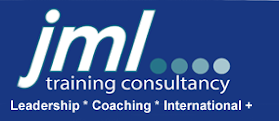
What happens to equality and diversity in the face of adversity? -Tuesday 21 December 2010
Latest research suggesting that women, ethnic minority groups and disabled people are being hardest hit in the recession was under discussion at a major equality summit held at Queen Mary, University of London last week.
Some 35 scholars, charity bosses and activists from across the UK, Europe and the US attended to discuss how to keep equality and diversity standards and legislation from slipping down government agendas, as public spending cuts bite.
“Decisions by the present UK coalition demonstrate the kind of negative attitudes towards equality legislation that come to the fore in an economic downturn,” says Dr Hazel Conley, member of international research network Promoting Equality and Diversity through Economic Crisis (PEDEC), which organised the event.
“In December, Lynne Featherstone MP announced the Government’s decision to shelve part of the Equality Act 2010 that required large companies to publish the pay gap between their male and female employees.
“When not in office, Ms Featherstone argued that equal pay would not be achieved without further regulation, but now a Cabinet member she advocates a voluntary approach to pay reporting, which research suggests is ineffective, especially during recession.”
Guest speakers on the day included Professor Jill Rubery, of the University of Manchester; University of Cambridge’s Professor Simon Deakin; Dr Iyiola Solanke, of the University of Leeds, and Anne Phillips, Professor of Political and Gender Theory at LSE.
Key papers were delivered on issues such as the realities of gender equality in times of economic downturn; the ongoing struggle for work-life balance, particularly for women who make the greatest compromises to fit paid work around family; and whether tough financial choices will have to be made when it comes to tackling societal problems like poverty, inequality or discrimination.
“Women will bear a disproportionate burden when it comes to welfare cuts, with a negative knock on effect for them and their dependents, according to the gender audit of the July 2010 Budget," explains Professor Lizzie Barmes, co-member of PEDEC.
“Beyond this study, as women make up more of the public sector workforce they will be more heavily hit by the public sector pay freeze and the projected 600,000 public sector job losses.
"It is issues like this which need addressing to progress equality and diversity standards. Following on from this successful conference, our aim is to continue bringing together like-minded equality experts to showcase research that can help the formulation of new policies and strategies for tackling exclusion."
Source: Queen Mary, University of London
___________________________________________________________________
Looking for Diversity / Equal Opportunities Training Equality Act Training Diversity Training? Then the website to visit is jml Training.com at http://www.jml-training.com/Diversity.htm
___________________________________________________________________








